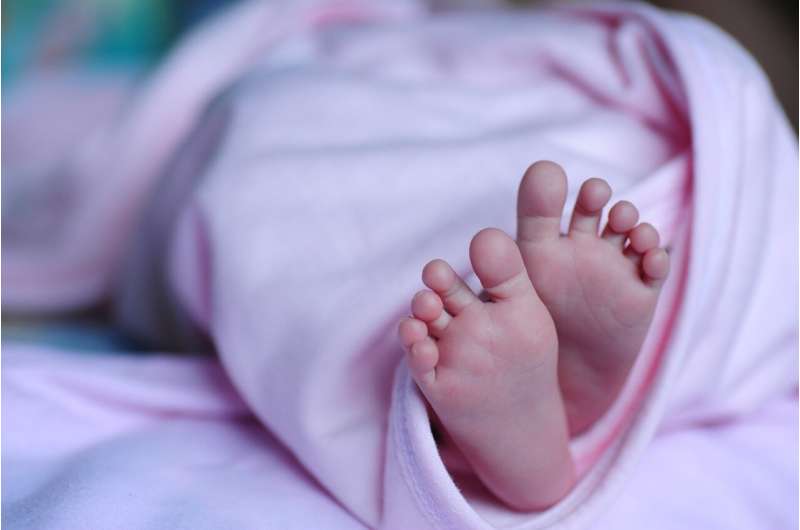Australian Sudden Infant Death Syndrome study 'provocative' but not yet a breakthrough

A small preliminary study out of Australia offers a tantalizing hint at what might cause Sudden Infant Death Syndrome, but doctors warn much more research is needed to know if the findings are conclusive in a larger group of infants.
The study, published May 6 in the journal eBioMedicine, is causing a stir among parents and getting passed around on Twitter and in blogs.
It measured levels of an enzyme called butyrylcholinesterase, which helps control the autonomic nervous system, in the blood of 67 babies in Australia who died of SIDS. The researchers, at the University of Sydney and the Children's Hospital at Westmead, found those levels to be significantly lower in babies who died of SIDS than babies who did not.
The researchers were careful to title their paper "Butyrylcholinesterase is a potential biomarker for Sudden Infant Death Syndrome," noted Dr. Rachel Moon, a SIDS researcher at the University of Virginia School of Medicine in Charlottesville.
"This is an extremely small study, with 67 cases and 10 controls," she said. "There is nothing definitive about this at all. It is definitely not confirmed that this is 'the cause of SIDS.'"
She said the strong parent interest in the Australian research, while understandable, was not yet warranted. While the enzyme levels were statistically different, there was enough overlap in the cases and controls that a blood test would not be useful at this time, Moon said.
In addition, some infants in the control group had the biochemical abnormality but did not develop SIDS. The lab samples tested were more than two years old and the enzyme levels may have changed since the time of collection, said Dr. Jason Nagata, a professor of pediatrics at the University of California, San Francisco.
SIDS is the leading cause of death among infants between the ages of one month and one year in the United States with at least 3,400 deaths each year
The Back to Sleep campaign in the 1990s to get parents to put their babies to sleep on their backs rather than their stomachs was associated with a decline in SIDS deaths of more than 50%, according to the National Institute of Child Health and Human Development.
Since then, researchers have better come to understand some of the underlying issues that cause babies to inexplicably die in their sleep.
Babies who die of the syndrome appear to be less able to auto resuscitate and rouse themselves when their breathing is impaired, as can happen when they sleep on their stomachs.
"A normal baby might gasp and arouse if their breathing were obstructed during sleep," said Dr. Richard Goldstein, a SIDS researcher at Boston Children's Hospital.
Infants who die of SIDS don't appear to have as strong an arousal response. "At least some of these babies do not struggle but die very quietly," he said.
For these infants their biology, rather than a preventable suffocation event, is the underlying danger. These threats are subtle, and the child might survive if they did not have these biological vulnerabilities, he said.
To be clear, no one is saying stomach sleeping is safe for babies. All infants should sleep on their backs because some—and it's impossible to know which ones—are especially at risk for SIDS when they sleep on their stomachs, Goldstein said.
Nagata added mothers also should avoid smoking during pregnancy and receive regular prenatal care.
Genetic and molecular markers linked to some SIDS cases have been found in recent years.
For example, a group at Harvard led by Goldstein found genetic variants linked to 11% of SIDS cases, including cardiac, neurological and congenital syndromes. A Mayo Clinic study found that 4% of SIDS deaths were caused by a cardiac arrhythmia gene.
The Australian study's findings are "provocative" and "a good start" but will require much larger studies to show that butyrylcholinesterase levels could predict which infants the risk of dying from SIDS, Goldstein said.
(c)2022 USA Today
Distributed by Tribune Content Agency, LLC.
















